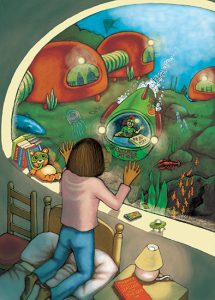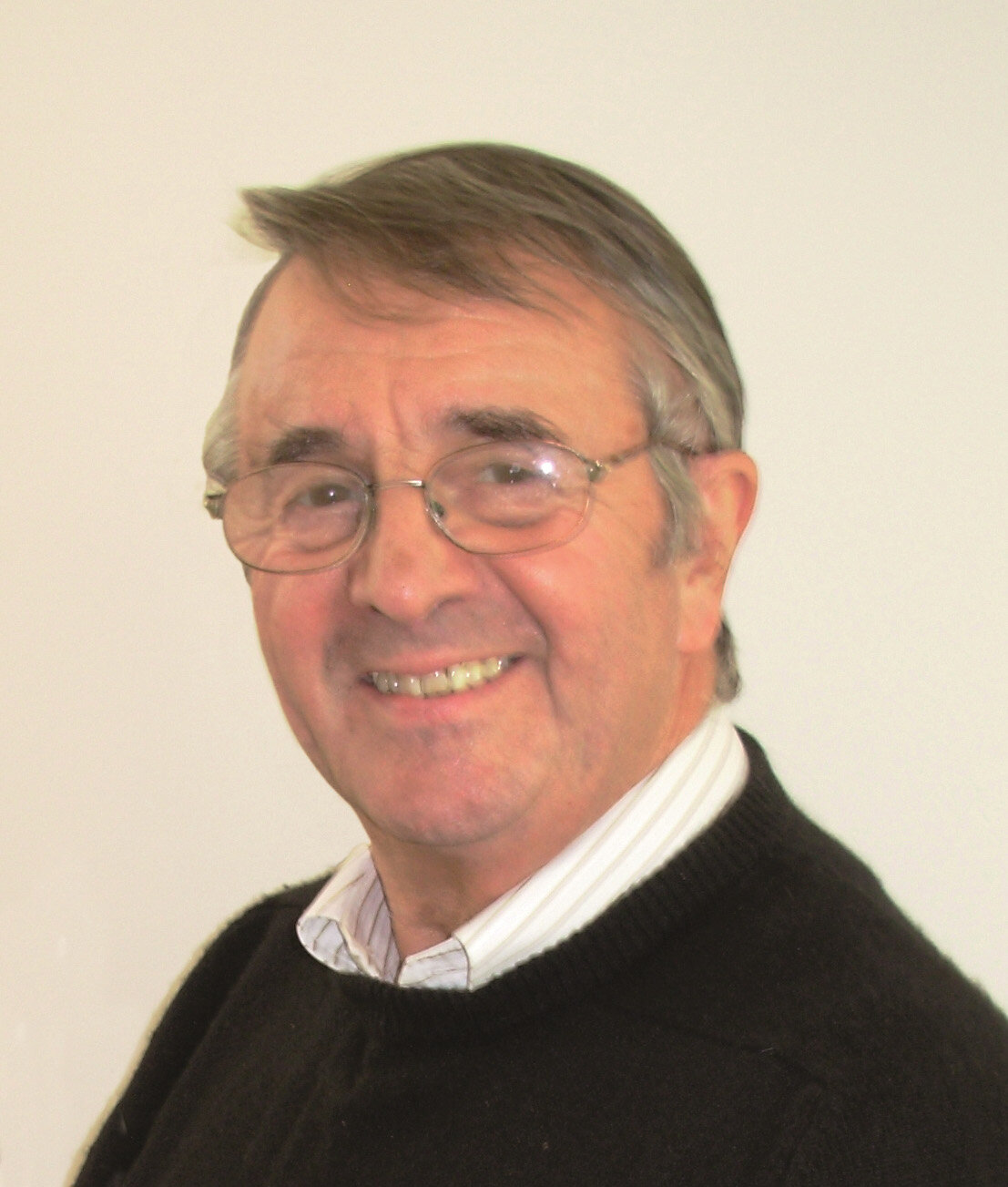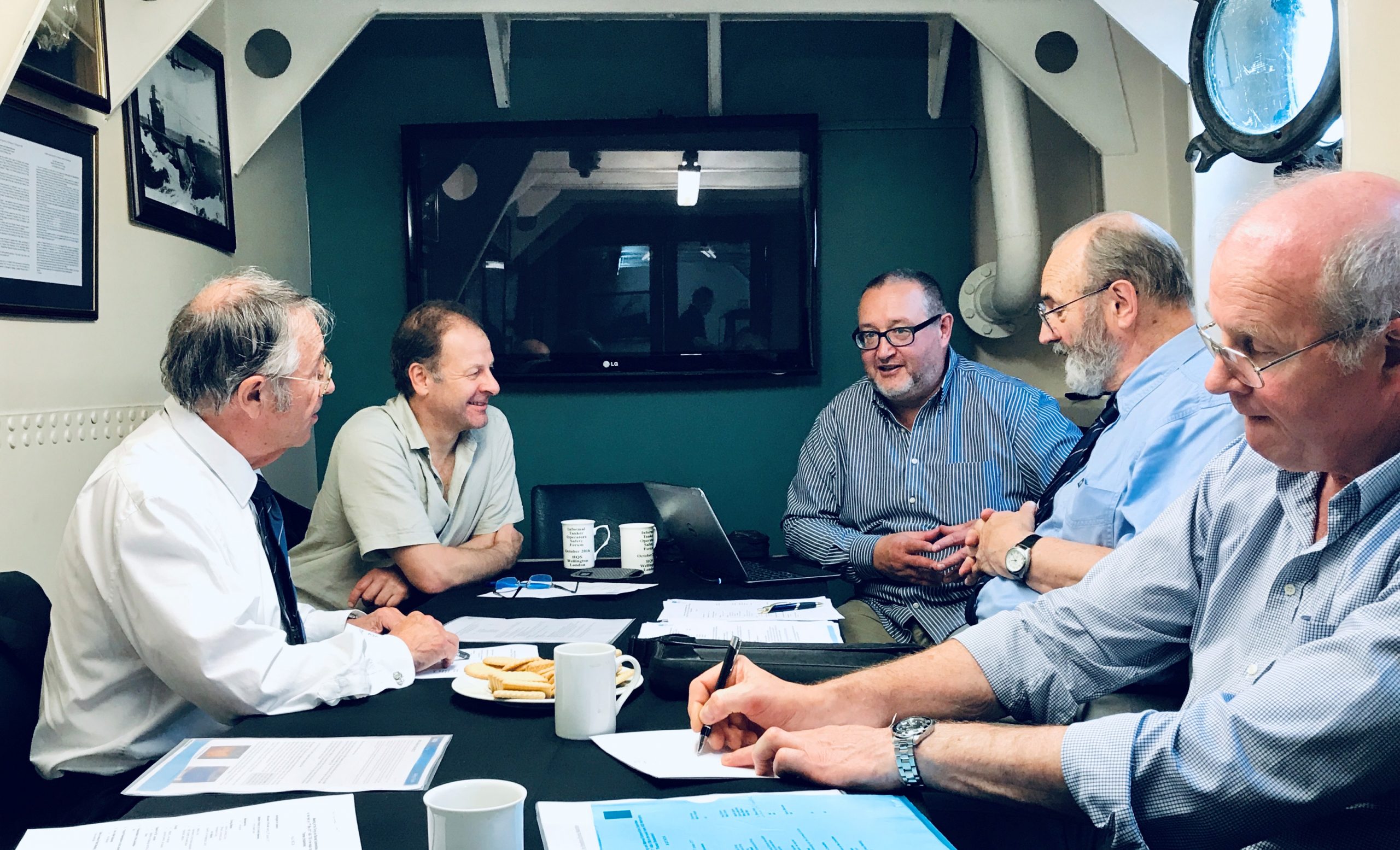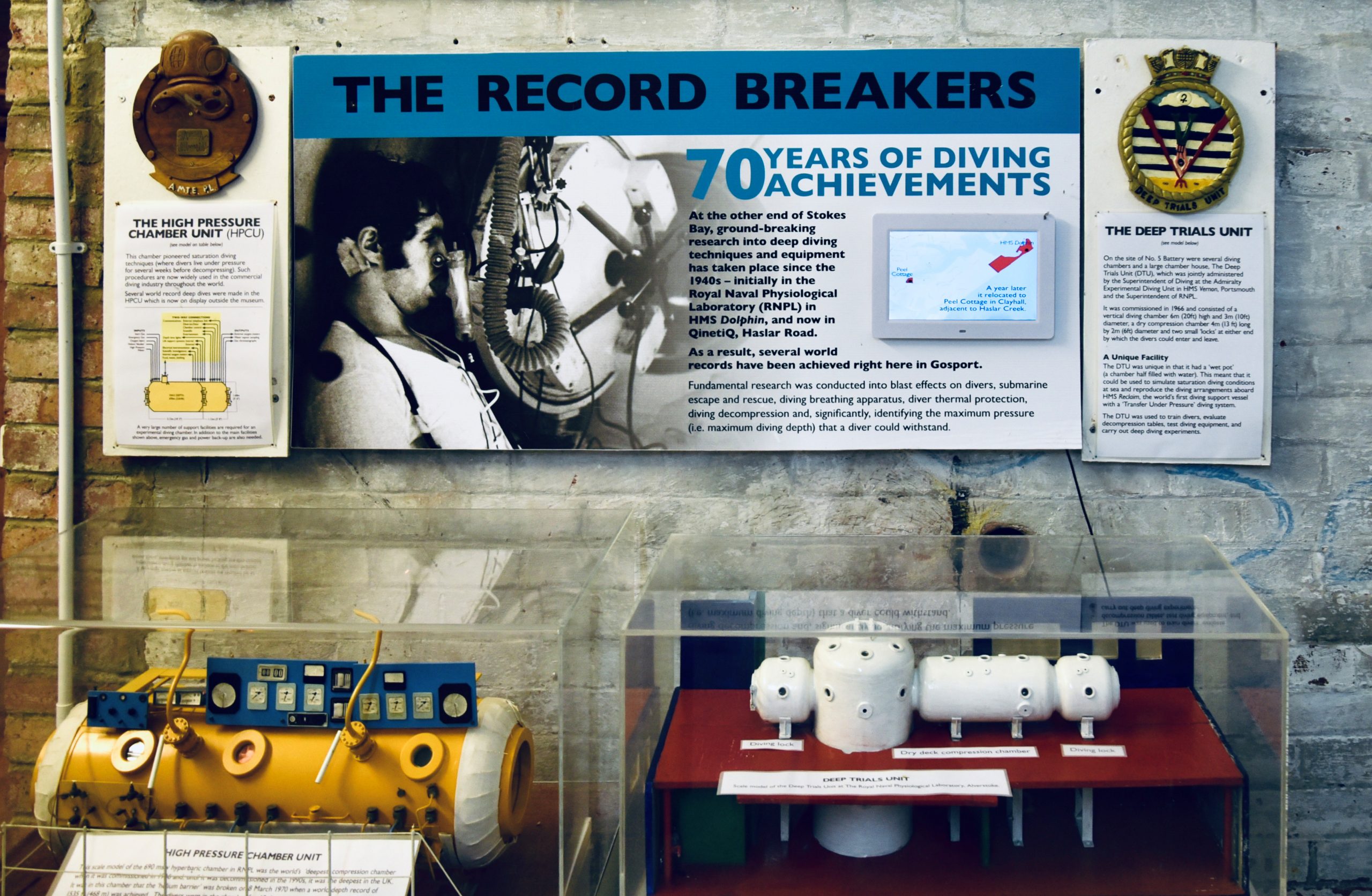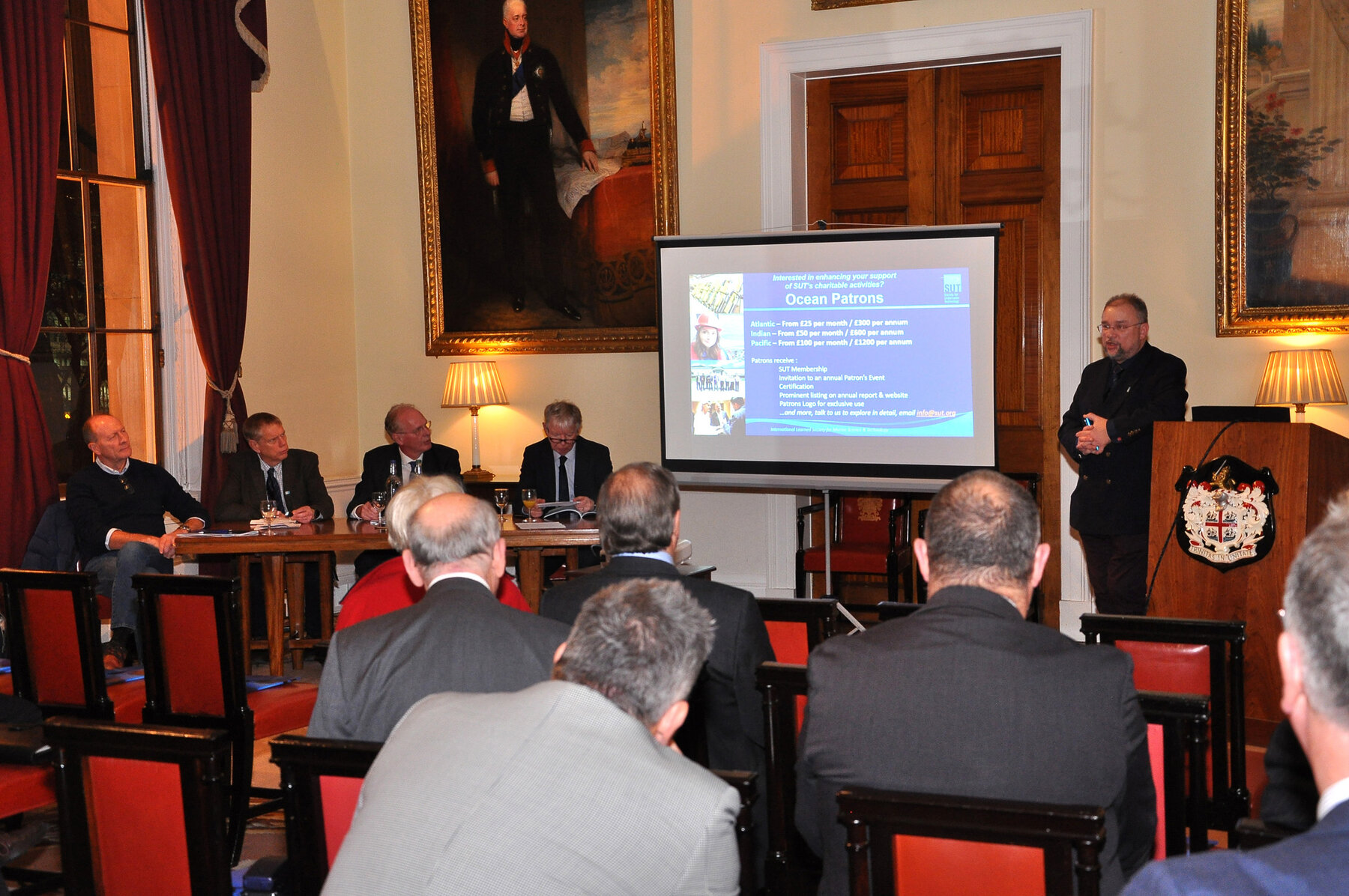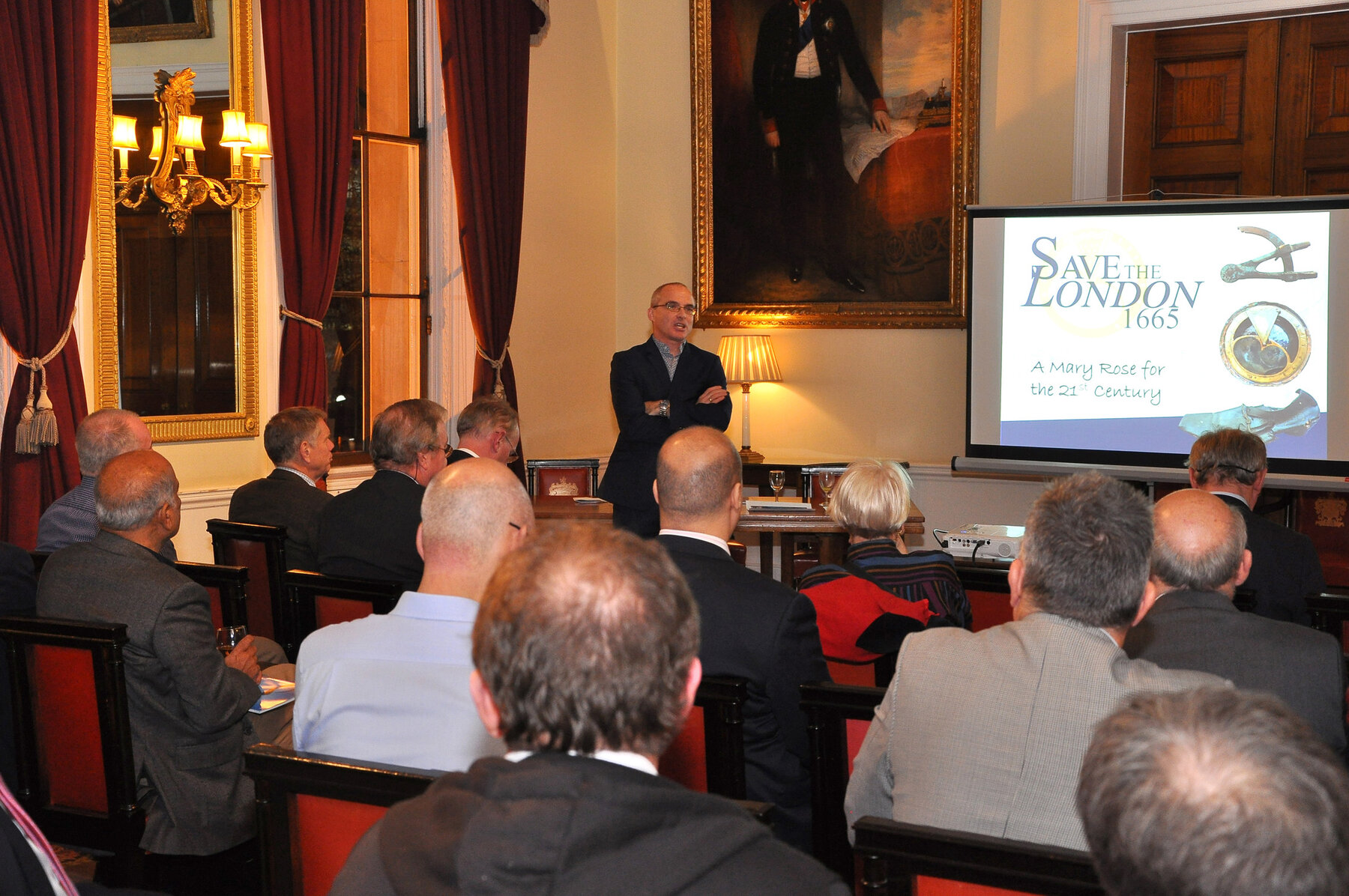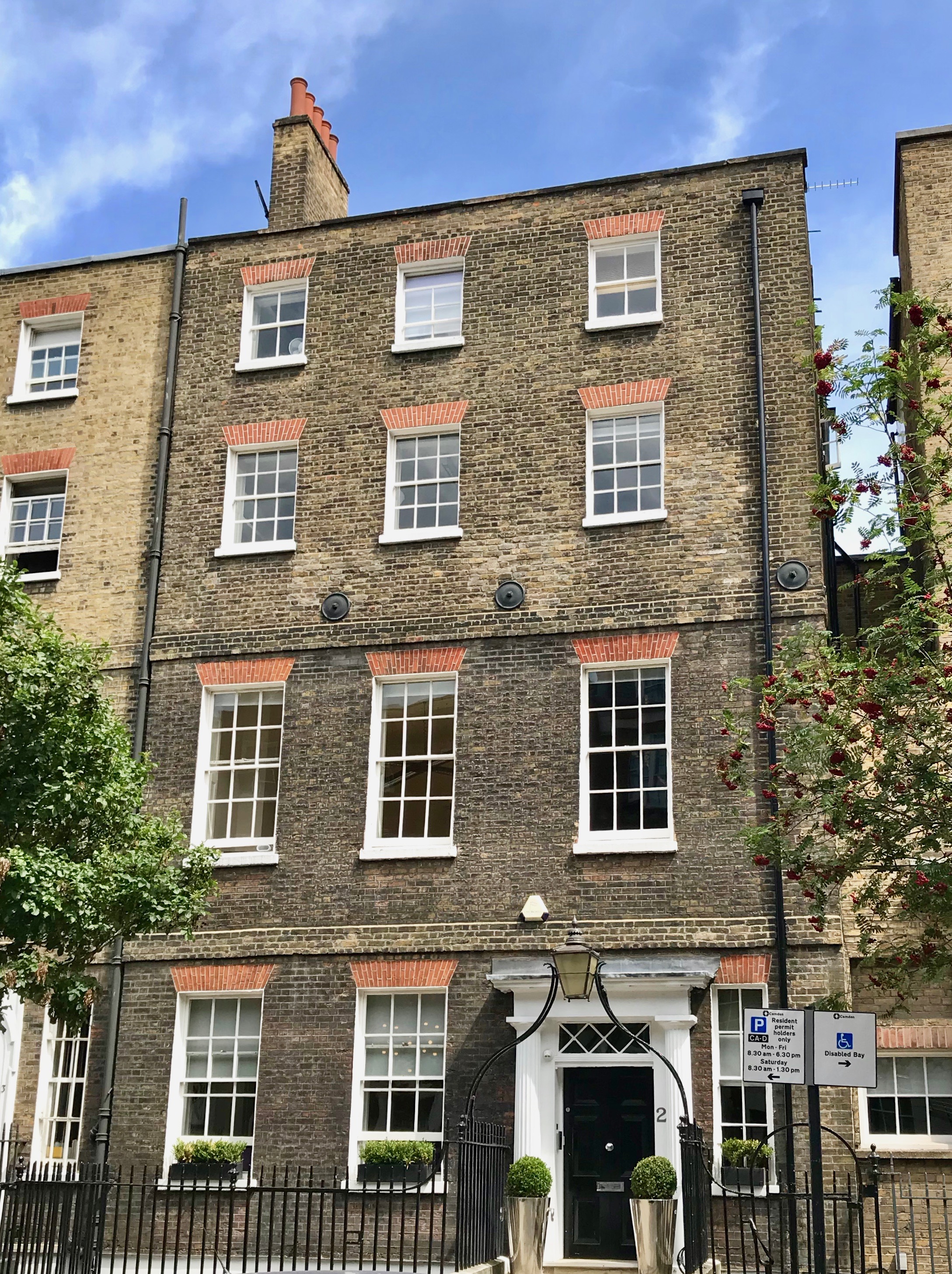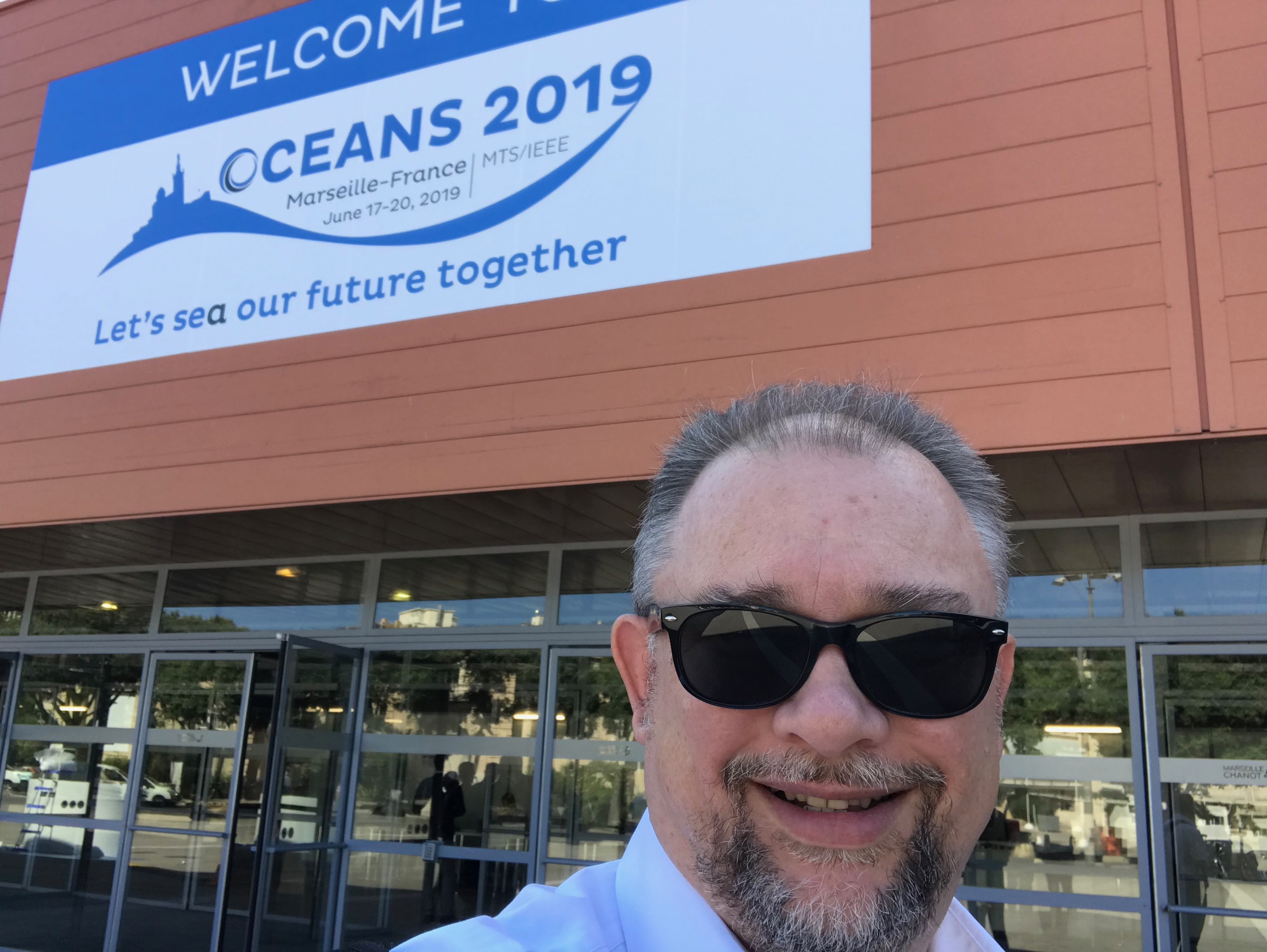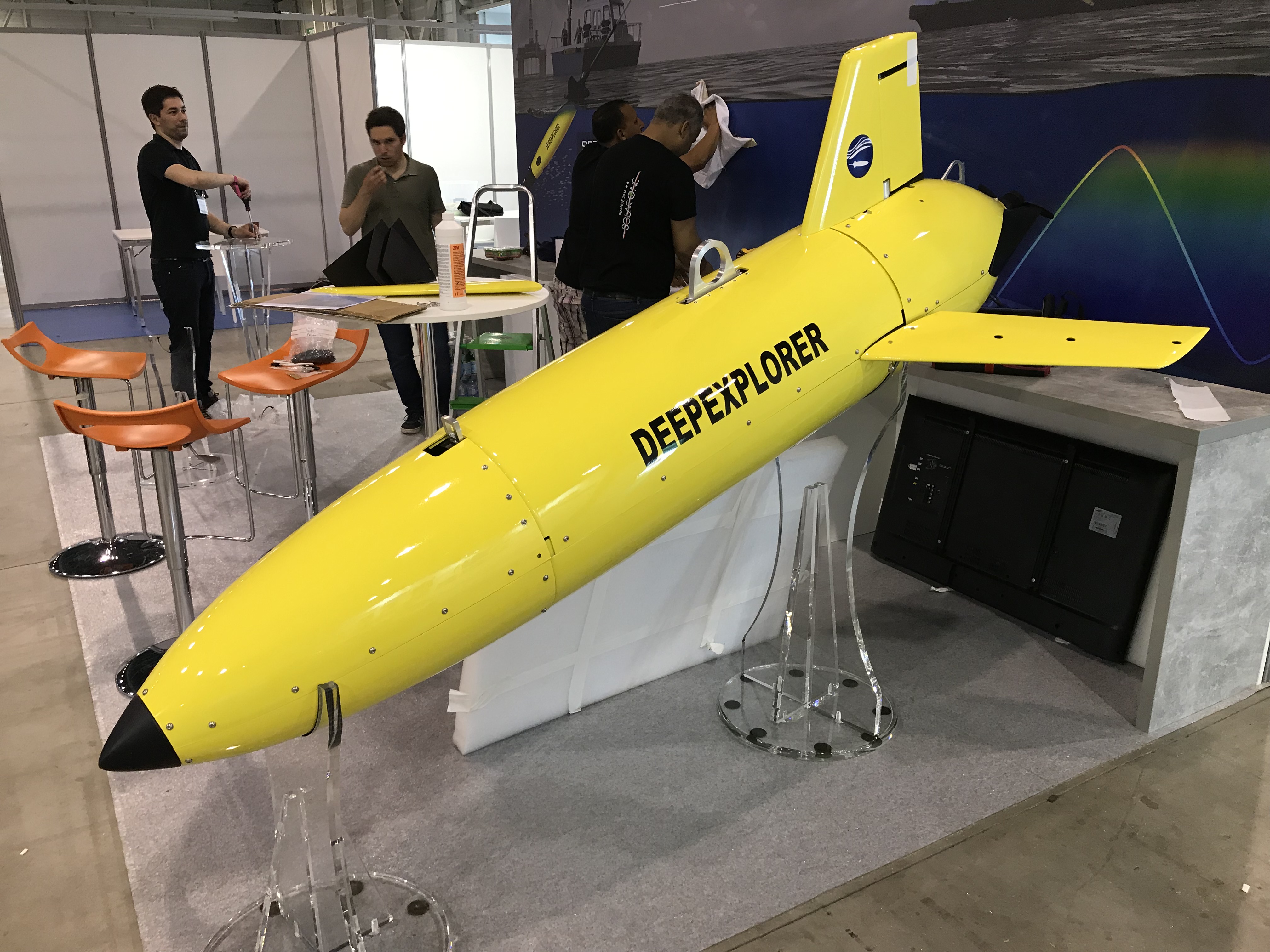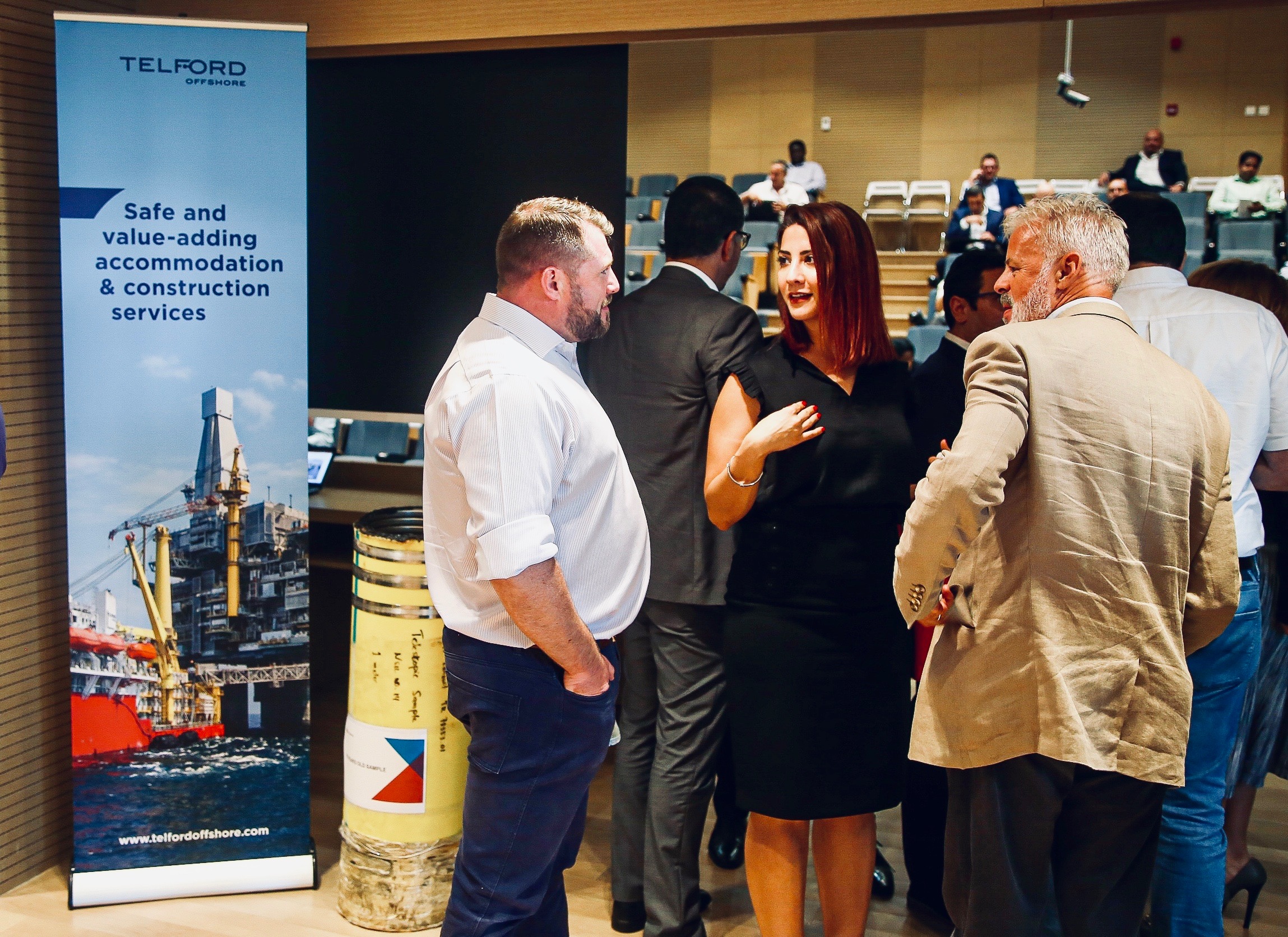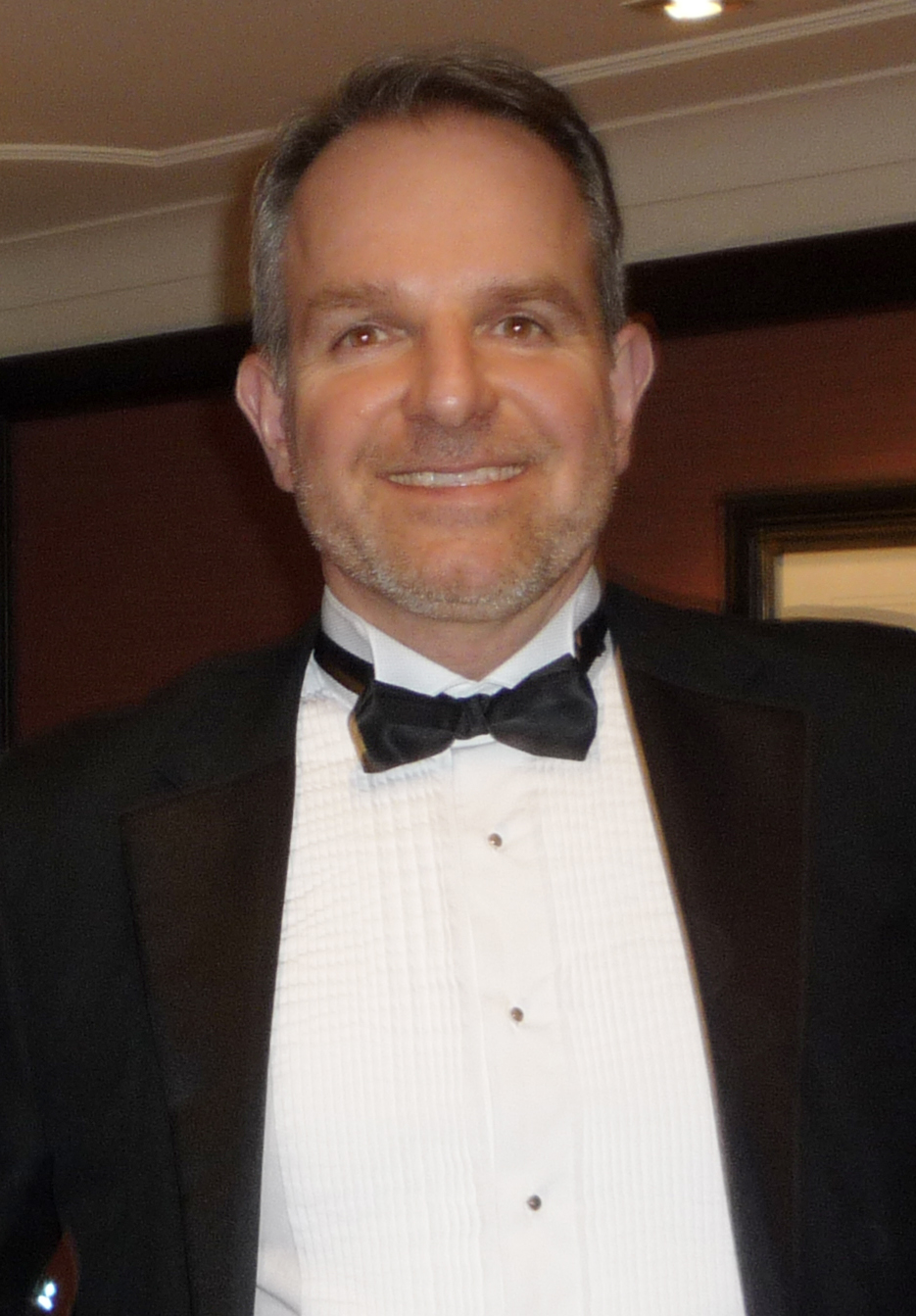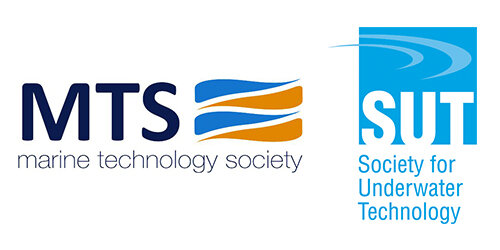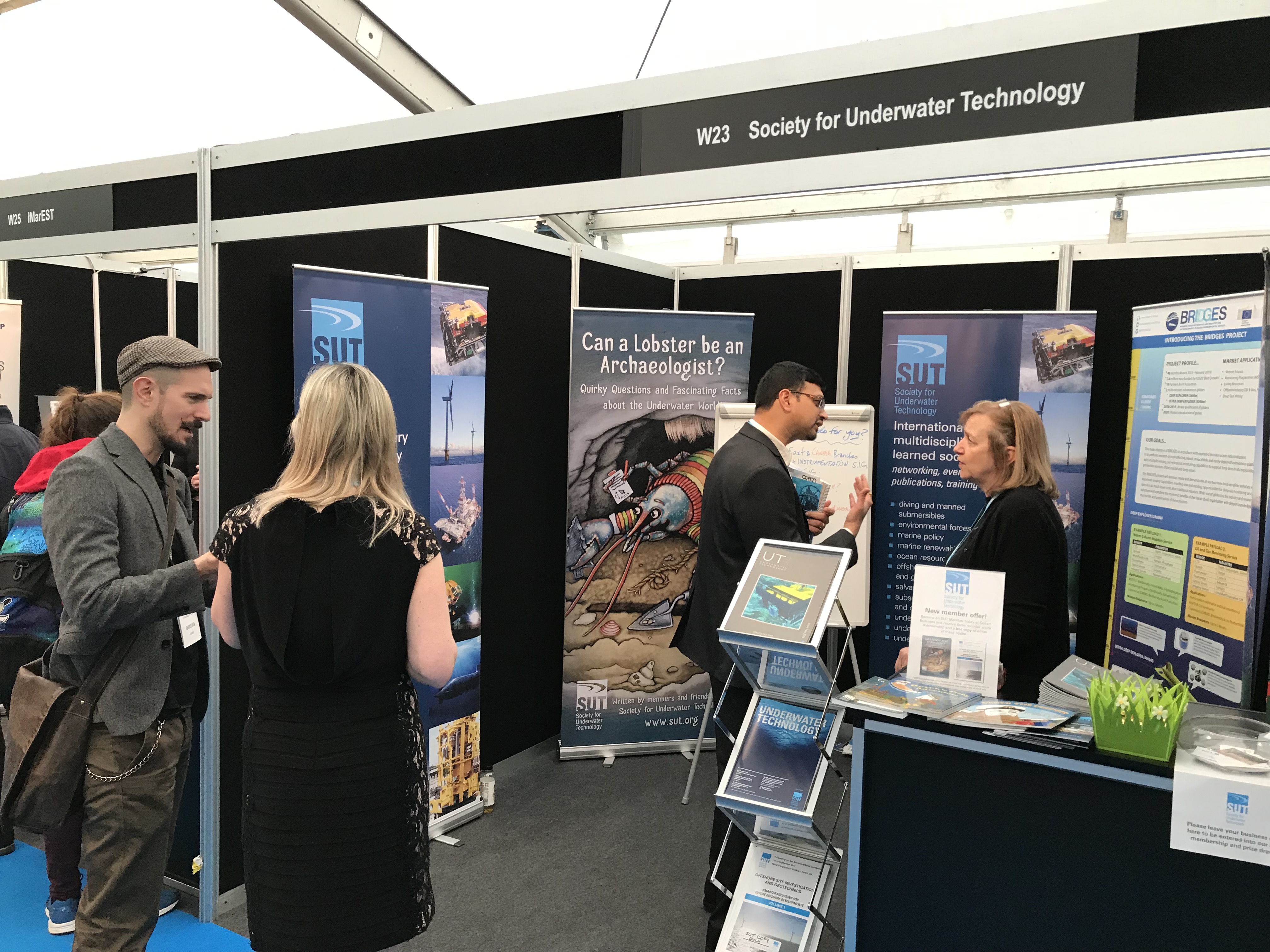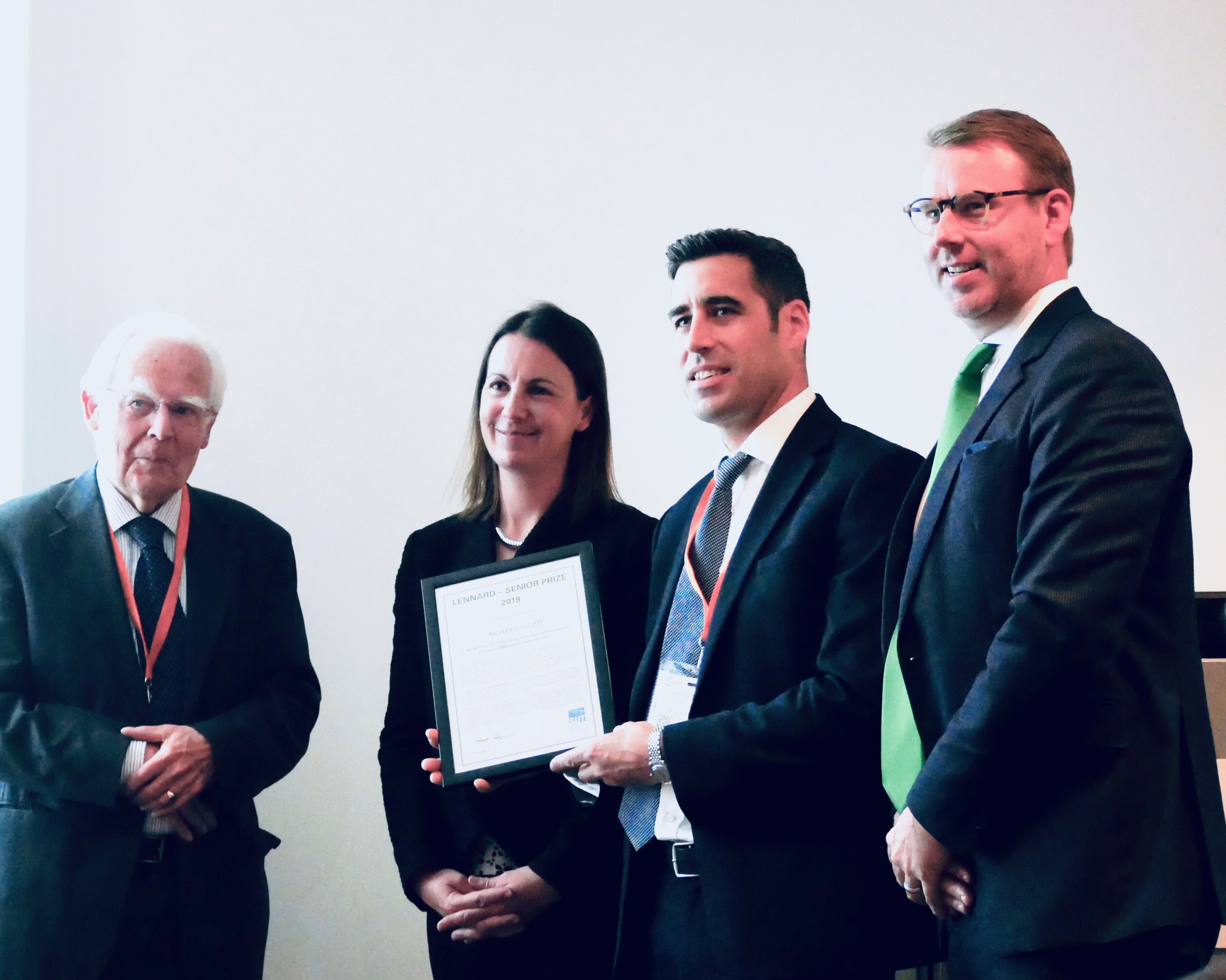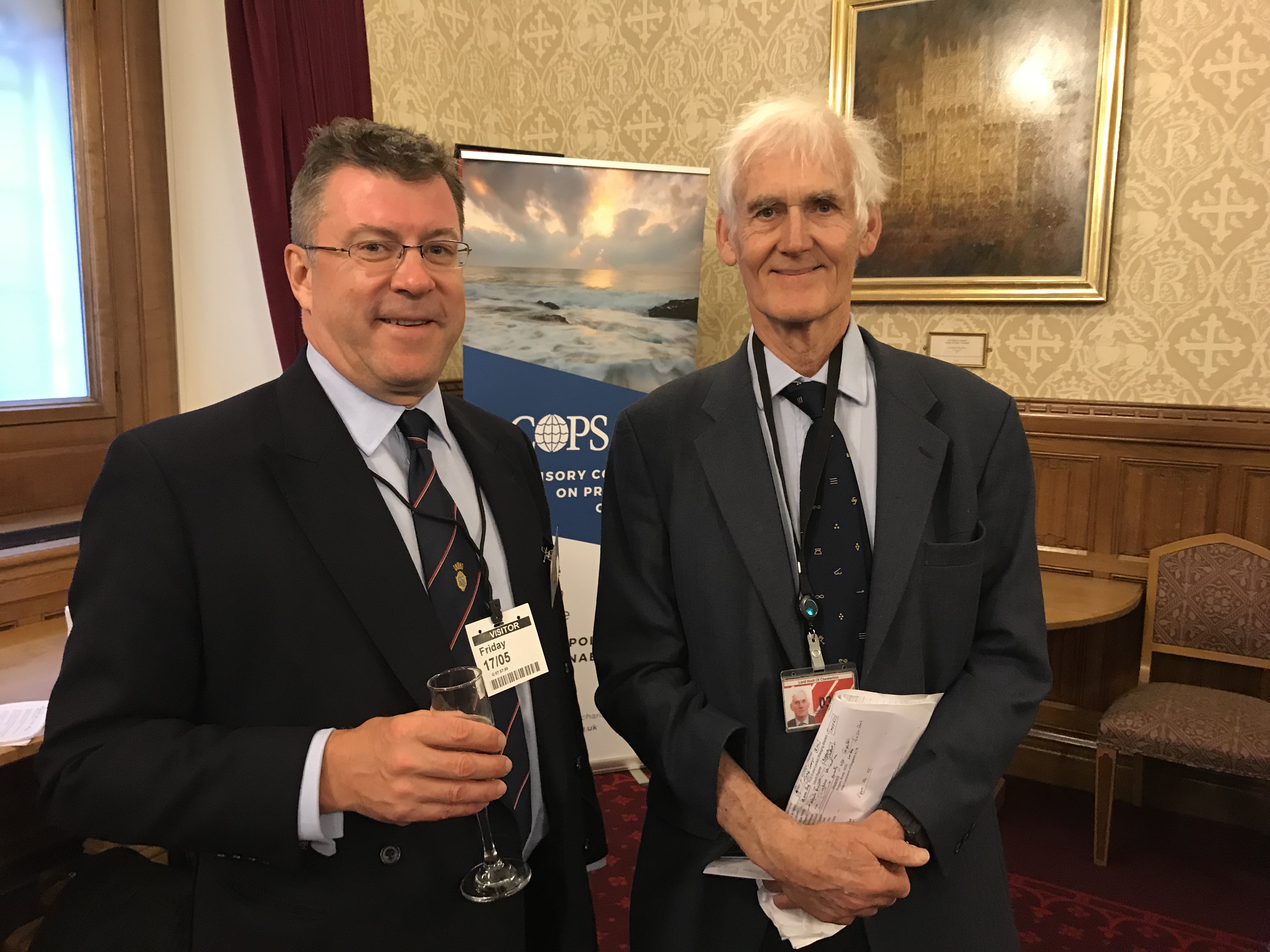Dear members – I started drafting this newsletter from a conference centre in Hainan Province, China in late October, where I was honoured to be the second speaker in a celebration of 40 years of the Chinese Society of Oceanography, in front of hundreds of delegates. Why was the SUT invited (and our expenses covered by my hosts)? Because the audience wanted to know about innovation, advances in ocean technology, energy security, how China fits into the rapidly-evolving world of subsea technology – and the SUT is seen as an international, unbiased, high-quality provider of knowledge on a wide range of ocean technology subjects including the systems required for offshore energy production, fossil and renewable, about marine autonomous systems, seabed resources, the interface between academia & industry, and about the need for advances in the policy and legal aspects of offshore operations. We are rightly seen as first & foremost a Learned Society rather than a Trade Body, and as having a significant global presence.
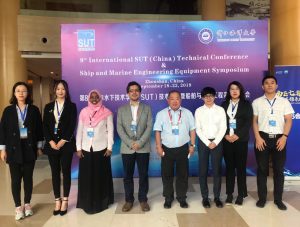
SUT China branch students with Chair Professor Frank Lim
It was clear from the talk before mine that China worries about being reliant on overseas sources for hydrocarbons. They want to develop unconventional fuel resources such as gas hydrates, which are abundant within their exclusive economic zone, and to produce hydrogen and renewable energy on a vast scale. SUT’s branch in China, chaired by Professor Frank Lim, is seeing progress in making new connections across a broad cross-section of the Chinese marine technology community especially within the postgraduate students and early-career people there – and I expect that in future years the bulk of growth of the SUT will occur in Asia, especially as energy transition & marine robotics takes offshore industry into new directions.
In November the SUT were in China again as guests of Reed Exhibitions, with a leading role at Oceanology China in Shanghai, in particular to support the unmanned systems strand in the conference programme, which I chaired. It was good to see familiar faces from Western manufacturers and service companies, plus the keen new entrants into our sector from east Asia. The SUT also jointly hosted a ‘Happy Hour’ at the event with our friends from the Marine Technology Society, and we were honoured to be asked to present prizes to the young winners of school & college technology competitions.
Keeping with this international theme, in the same week as Oceanology China, the ADIPEC event was on in Abu Dhabi and for the first time the new SUT Middle East Branch had a stand, provided at no cost by the hosts. Branch Chair Adrian Phillips and his team of volunteers did a great job raising awareness of SUT, and I’m pleased to report that the Branch is growing well, and promises to be a major new presence in the region, reinforcing my belief that Asia will be core in our future growth. A couple of weeks beforehand Adrian had kindly presented a paper on developments in marine autonomous systems that I had submitted to IMarEST for their defence marine technology event in Oman. I was unable to attend as I had been asked to present a civilian technology foresight report to the European Marine Board at their Berlin conference, so Adrian was able to step in and ensure that SUT will be featured in the Oman Conference Proceedings and raise our profile in the region.
We were also invited to present work on advances in underwater technology to DNV-GL in Oslo in October, sharing the venue with the likes of Jimmy Wales the founder of Wikipedia, Hans Vestberg, the CEO of Verizon, & Erna Solberg, the Prime Minister of Norway – evidence that although the SUT isn’t a large Society, our reputation for excellence and as a source of expert knowledge is spreading, and that we are in demand from people who want to know more about what our sector is doing, and is capable of doing in the future to meet the challenges of sustainable, clean energy production, access to minerals, and access to marine food resources.
Now, I’m not an expert on all of these fields and can’t be on the road all the time, so as we enter 2020 I’ll be looking for additional volunteers who we can ask to speak of behalf of SUT at events such as the ones mentioned above – it will be good to have a roster of enthusiasts we can call upon to celebrate and share the advances our community is making in a wider range of fields, and enhances the value and reputation of SUT membership.
Branches and Committees
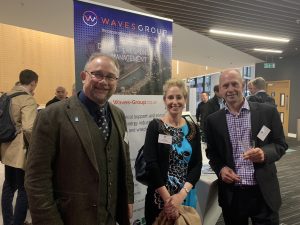
At the salvage & wreck removal workshop in Glasgow in October
Within the UK our Branches carried out a full programme of events, as did several of our Committees and Special Interest Groups. The International Salvage and Decommissioning group delivered a well-attended salvage and wreck removal workshop in Glasgow as part of the Marine Association of Science & Technology Scotland (MASTS) annual science meeting, OSIG hosted their annual Geoforum in Bristol, and the Education Committee delivered lectures in schools and colleges. Aberdeen Branch excelled as they so often do on a very well attended schools’ event at Aberdeen’s Music Hall in November, jointly hosted a ‘Future Subsea Digital Toolbox’ event with the Hydrographic Society in Scotland and IMCA, as well as their regular daytime and evening events including unexploded ordnance detection & disposal, & subsea power systems. Aberdeen also hosted the most Subsea Awareness Courses that we have been able to deliver for quite a few years, evidence of growing confidence and investment returning to North Sea operators. Newcastle focussed on future offshore marine energy industries and marine plastics in their autumn schedule, and London & Southern England covered a wide range of subjects including John Englander on Sea Level Rise, Philomene Verlaan on Deep Sea Mining, and Chris Baldwin on the NATO submarine rescue service. There was a fun-filled quiz night held at the Ye Olde Watling on 19th November and the South West Chapter looked at ship-based robotics. The SUT Plus groups were also active, with an event on ‘subsea operations – diver or diverless?’, held at Aberdeen’s Maritime Museum on 21st November.
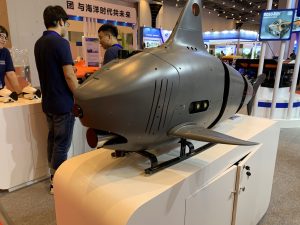
Robo-shark biomimetic AUV on display at Hainan meeting, late October.
Singapore held evening technical meetings and an evening social event, Perth delivered a multitude of daytime and evening events including their respected AUT Conference at the end of October and a number of social events including those for their young engineers and scientists group, ‘YES!’.
SUT in the US have delivered another full season of activities ranging from training events and technical evenings to their popular social gatherings and awards of student scholarships.
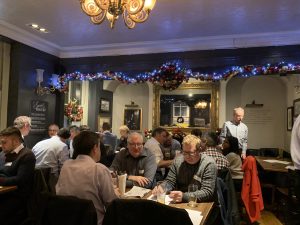
LSE branch pub quiz at Ye Olde Watling
In the last week of November our latest embryonic branch, St John’s Newfoundland held their first meeting, with a keynote from Professor Neil Bose of Memorial University, who also chairs the SUT Panel on Underwater Robotics.
Training, and Professional Accreditation
When I last wrote I said that we were working on introducing Professional Accreditation for SUT Members by licensing IMarEST’s Chartered Marine Technologist scheme, in a scheme that will be launched simultaneously by the Marine Technology Society. Most of the details are in place, and the scheme is ready to roll out, and on 23rd December we will formally issue our first batch of invitations to apply to become Chartered, with relevant documents such as handbooks and instructions to be placed on our website in the Members Area. I’ve asked for half a dozen volunteers to form the first cohort of SUT members to go through the accreditation system and if you’d like to be added to their number please contact me directly at [email protected] – the first few people will receive a discount on professional accreditation fees as we will of course be ‘learning the ropes’ as we work with them, and if the pilot is successful we will roll on professional registration on a larger scale during the second half of 2020, and eventually be able to offer Chartered Marine Engineer and Chartered Marine Scientist in addition to the initial Chartered Marine Technologist. We also have the option of launching sub-classifications such as CMarTech (ROV) or CMarTech (pipelines) etc. as the scheme develops.
Educational Support Fund
We awarded new scholarships to Andrew Robinson of the University of New England, USA, and to Alicia McDowall of the Scottish Association of Marine Science in Oban. Both were superb candidates, there being a very high standard of applicants. Alicia’s scholarship has, with the agreement of his family, been named in honour of our good friend and Council Member Chris Milner who passed away unexpectedly in the summer.
In future we hope to be able to expand the number of scholarships that SUT HQ is able to support, especially as some of branches – in particular the USA Branch – have a terrific record of student sponsorship. Alongside the publication of our Journal, our interaction with the next generation is key to maintaining our charitable status (& not for profit status in other jurisdictions) so maintaining sound scholarship programmes based on high quality students is a very important part of what the SUT exists to do.
SUT-MTS Exploratory Committee
As previously advised, SUT signed a memorandum of agreement with the Marine Technology Society earlier in 2019 and already this has born fruit, with a solid relationship being built on jointly developing the professional accreditation system with IMarEST, co-chairing of sessions in the Oceanology International Conference Programme and putting people in contact with each other. Following the SUT’s 24th October Council permission was given to our President Professor Ralph Rayner to attend the meeting of the MTS Board in the USA during the Oceans 19 Conference, and following from that we have now agreed to form a working group of senior members from the Council/Board of both societies to explore more options about how we gain better than the sum of our two parts by working more closely together. Where these discussions eventually lead will become clearer once each Society has a more complete understanding of one another’s strengths, weaknesses and aspirations – members will be kept fully informed on progress.
Here’s the joint letter drafted by the Presidents of SUT & MTS for circulation to all members:
Joint MTS & SUT Member Communication
Message from Professor Ralph Rayner, SUT President
(issued same date by MTS President Rick Spinrad to MTS members)
SUT Members
We are at an important inflection point in the world of marine science, engineering, and technology as there is more global attention than ever on a wide array of issues, including the Blue Economy and sustainable ocean development. Our members and our Society have an important role to play in the way the ocean is studied and used.
To that end, I want to let you know that the Society for Underwater Technology and the Marine Technology Society have formed an exploratory joint committee to investigate new partnership models between our two Societies that would benefit our members and the wider community.
Both Societies were founded in the mid-1960s and have roughly the same number of members who focus on a variety of marine technologies and aspects of ocean science and engineering. While SUT is based in London and has approximately half of the membership based in the UK, MTS is based in the US and has its largest membership in the United States. Both Societies have international Sections/Branches in areas that complement each other, only Houston having significant overlap. While we have different corporate models, the mission and objectives of our respective organizations are highly complementary.
Many of you have invested much in the Society over the years, and I want to assure you that our goal is to recognize the history, reputation, and work of both Societies as we explore future partnership models. It will be the work of the joint exploratory committee to consider all aspects with no foregone conclusions about the nature of the product or recommendations that this committee will produce.
We expect the committee to begin their deliberations and assessments early this winter and formulate their findings and recommendations over the next year. The full membership of both societies will be afforded opportunities to engage and provide comment to the committee and the societies’ respective leadership bodies. You can expect regular updates about our progress.
The committee includes:
David Saul (SUT Exploratory Committee Co-Chair)
Mick Cook (SUT)
Dave Brookes (SUT)
Richard Crout (MTS Exploratory Committee Co-Chair)
Andrew Clark (MTS)
Mike Pinto (MTS)
In the next few months, the committee will work together to dig deep into the structures, programs, and finances of the two Societies. In the meantime, please direct your feedback to myself, Ralph Rayner [email protected] or MTS President, Rick Spinrad, [email protected] . Email us with any thoughts, concerns, suggestions, or questions you have. We value your input.
Annual General Meeting of SUT
On 16th December we’ll be holding our AGM at Trinity House once again, and I’m looking forward to meeting members, welcoming our new Members of Council and awarding certificates to our prize winners and new Fellows. We have an excellent talk lined up from our colleagues at the Nautical Archaeological Society, and it promises to be a fun, inspirational and educational evening for all.
In Memoriam
Sir Anthony Laughton FRS
We were sad that learn that our former SUT President, Sir Anthony Laughton FRS, had passed away at the end of September at the ripe old age of 92. I worked for him 1997-2002 when he was Steering Committee Chair of the pioneering NERC Autosub Science Missions programme, and on hearing of his ill health had written to Tony a few weeks before his death, thanking him for his service to SUT as well as my personal thanks for his mentorship and guidance.
Former SUT Chair & President Professor Gwyn Griffiths writes:
“From his earliest days at the National Institute of Oceanography in Wormley, which he joined in 1955, Tony Laughton had an affinity for technology. In the mid 1950s he devised a deep-sea camera, deployed on the end of a wire lowered from a ship, that, when a weight on a line touched the seafloor would trigger a flash, take the photograph and advance the 35mm film. Later versions, designed with Dickie Dobson, added a shutter for use in shallower water where there could be ambient light, and a photocell to detect whether there was sufficient light reflected for a decent photograph.
Tony’s science needed greater repeatability in depth soundings than provided by the mechanical governors in the echo-sounders of the time. He introduced crystal controlled timing, leading to the Precision Echo Sounder. Less well-known was his invention of a Continuous Profile Recorder, a small display of the full depth range to complement the 400 fathom window on the main display. This must have been a boon to heavy-eyed watchkeepers who might lose track of the “phase” – that is, the depth to add to the main display.
His instruments were used beyond science. For example, in 1963 (or 1964), he took a Precision Echo Sounder, deep-sea camera and corer to the Luzon Strait to survey a new telephone cable route for Cable and Wireless, finding hazards including high currents at the seabed and outcrops of sandstone.
His scientific observations were key in developing the understanding of plate tectonics, as his team discovered that the seabed rocks either side of the mid Atlantic ridge displayed different magnetic properties in a symetrical pattern, providing solid evidence of sea floor spreading.
He became Director of the Institute of Oceanographic Sciences Deacon Laboratory in 1978, a Fellow of the Royal Society in 1980 and was knighted for his services to marine science in 1987. Tony had a long involvement with SUT, serving as our President in 1996-7.
After his retirement he was succeeded as IOSDL Director by Colin Summerhayes, who also later served as SUT President.
When, in 1997, the Natural Environment Research Council sought a steering committee Chair for the Autosub Science Missions programme, Tony Laughton was an inspired choice. At a time when autonomous scientific submersibles might have turned out to be a mere technical curiosity, Tony’s appointment sent a clear and confident message that excellent science was to be the principle outcome. And as then President of the Society for Underwater Technology he epitomised the productive bridging of marine technology and science.
Under his leadership the steering committee proposed a portfolio of projects that took Autosub from the North Sea to the Antarctic. The science outcomes from a community of researchers with the ideas to exploit Autosub made possible today’s NERC fleet of some 40 autonomous vehicles”
Sir Anthony’s legacy lives on in the marine robotics community, the geophysics community and even on charts of the Atlantic Ocean, where numerous features were named by Tony and his colleagues in an era where a certain light-heartedness was still permitted alongside the serious scientific work – you may find Atlantic seabed features named after favourite brands of biscuits if you look carefully.
Another good friend of SUT and long-serving Member and Fellow who passed away in the last few weeks was John Lawson, who worked for Chevron in Aberdeen. John made a major contribution to SUT over the years, most recently through his support of our Subsea Awareness Course. He was even more active in our sister Learned Society the IMarEST, chairing their membership committee and subjecting many young engineers to their professional reviews. He was a keen supporter of SUT becoming a body licensed by IMarEST to issue professional recognition, and his unexpected passing leaves another gap in our community that will take time to fill.
I’ll end this newsletter with a heartfelt Thank You to all of our staff and the volunteers who enable SUT to hold events, inspire the next generation, develop new branches and carry out the numerous duties that are essential to the successful running of an international marine science & technology Learned Society. We couldn’t do our work without you, and my job would be impossible.
For those of you in the northern hemisphere, wrap up warm for the winter months, for those in the south enjoy your summer. For those who celebrate Christmas, have a wonderful festive season, and I look forward to working with you all again in 2020.
Steve Hall
CEO SUT
